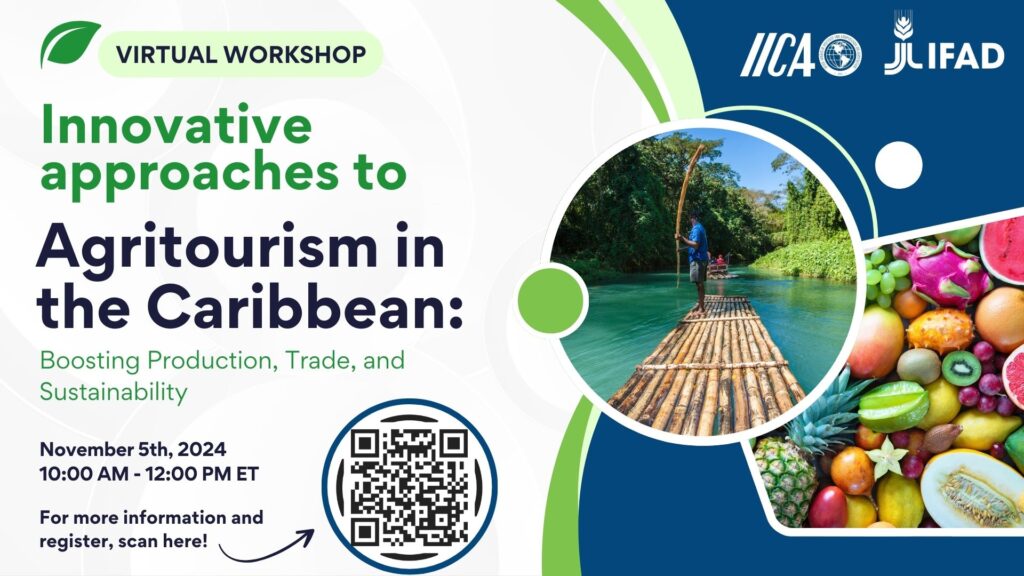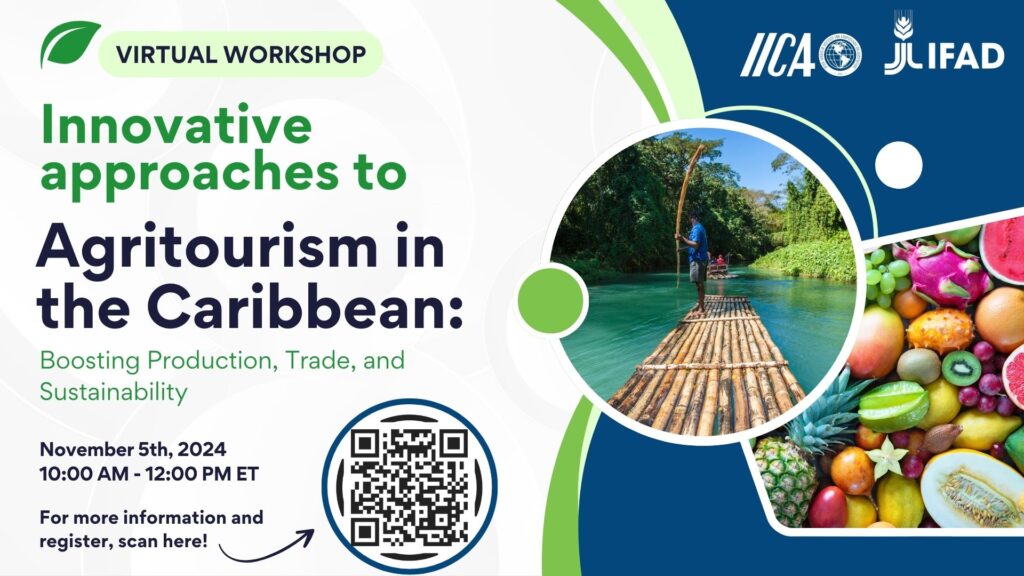
Date:
November 4th, 2016
Time:
8:30am – 5:15pm
Location:
Organization of American States,
Hall of the Americas,
17th Street and Constitution Ave., N.W.,
Washington, D.C. 20006, USA
Download Agenda in English or Spanish
On Twitter follow @IICA_USA during the event and use hashtags
#AgMech or #Mechanization and in Spanish #Mecanización to contribute to the dialogue.
The International Food Policy Research Institute (IFPRI) and the Inter-American Institute for Cooperation on Agriculture (IICA) will host a seminar on The Present and Future of the Agricultural Mechanization in Latin America.
In this seminar, experts from different fields will discuss the current situation of agricultural mechanization in Latin America, paying attention to those factors that have limited machinery and technology adoption, while identifying possible actions and needed public policies, in particular those that can improve mechanization among small and medium scale producers and in turn improve productivity, efficiency and sustainability of the agriculture sector in the region.
Concept Note
The new model of production and management in the agricultural sector assumes an increasing level of interaction and linkages among all agricultural actors and less isolated and individual actions from any of them. This allows for a more rapid diffusion of knowledge and facilitates adoption of new machinery and technologies, increased funding and better risk management, all having significant positive impacts on productivity. Therefore today agriculture is viewed as a wide system in which different actors participate and in which all production and management aspects are linked, machinery utilization among them.
The level of agricultural mechanization varies across countries in Latin America. It is not entirely clear what are the limiting and enabling factors and their specific contributions to more or less mechanization in different countries and regions. One hypothesis is that the demand for mechanization services has been limited by a reduced scale of production. However, access to mini-tractors, for example in Andean countries, can help to cope with the issue of small-scale production in many countries. Another influential factor in machinery utilization is the increasing use of modern inputs as they come in the context of more integrated production systems. In this case combining effectively the use of machinery, inputs and other production factors, and management are at the core of the new approach. Access to financing in its various forms (credit, leasing, factoring, etc.) which sometimes is linked to public policies is also a factor that can affect agricultural mechanization.
In the context of multiple factors influencing the processes of agricultural mechanization, with countries and regions at different levels of machinery and technology adoption and having a new model that advocates for integrated production systems interrelating all factors of production and management, it is considered highly relevant to analyze the present and future of agricultural mechanization in the Americas. In the seminar the current situation of agricultural mechanization in Latin America will be analyzed paying attention to those factors that have limited machinery and technology adoption and discussing possible actions to expand adoption. While identifying possible actions it will be important to discuss public policies, in particular those that can improve mechanization among small and medium scale producers and that can help improve productivity, efficiency and sustainability of the agriculture sector in Latin America.
The seminar will be divided into five sessions. In the first session the general situation of agricultural mechanization in Latin America will be presented. Findings from an ongoing study by IFPRI will be shared. This study looks at the current state of agricultural mechanization establishing intra-regional differences by different type of producers and actors along the value chain.
The second session aims to get farmers’ vision on what are the main challenges to increase mechanization and what are the possible solutions to successfully face them. The discussion will be led by representatives of producer organizations. Producers will also share concrete successful mechanization stories and the enabling factors that made then possible.
In session three machine manufacturers and suppliers will share their perspective on what are the main obstacles to expand their operations as well as their plans and actions to meet producers’ demands for machinery services. Also we will get to know what policies are considered desirable by manufacturers in helping increase mechanization levels in the region.
The fourth session will explore how independent machinery services providers in the region have helped increase mechanization in some countries and regions. As a different business model regarding access to agricultural services it will be important to identify the constraints that prevent service providers to reach higher mechanization levels and what were the conditions that allowed the expansion of the business model. This in turn will help to draw lessons on how to improve the delivery of such services in new markets, countries and especially among small-scale farming.
In the last session public policy options will be discussed addressing specifically those enabling actions that can increase agricultural productivity through different mechanization models.
Presentations:
Session 1: Current mechanization situation in Latin America and global perspective
Pablo Elverdín (IFPRI)
Scott Shearer (Ohio State University)
Session 2: Producers’ perspective
Alejandro Vélez (Colombian Agriculture Society)
Donald Milian (MG Group, Guatemala)
Germán Pérez (Consultant, Honduras)
María Lucila Quintana (Former President, Conveagro, Peru)
Session 3: Agricultural machinery manufactures’ perspective
Vanessa Stiffler-Claus (John Deere, USA)
Miguel Aburto Melo (Oxbo, Chile)
Session 4: Mechanization through agricultural service providers
Emanuel Bodega (Los Grobo Group, Argentina)
Eduardo Griffin (Uruguayan Chamber of Agricultural Services Secretary) (CUSA), Uruguay)
Ricardo Garbers (FACMA, Argentina)
Lanfranco Tretti (TECNOAGRICOLA, Costa Rica)
Marcelo Marini (Association of Agricultural Machinery Industries of Rio Grande do Sul (SIMERS), Brazil)
Session 5: Policies to promote agricultural mechanization in Latin America
José Manuel Hernández Calderón (Minister of Agriculture and Irrigation, Peru) – English / Spanish
Verónica Santillán (Delegate, The Ministry of Agriculture, Livestock, Aquaculture and Fisheries, Ecuador)
Felipe Orellana (Vice Minister of Rural Economic Development, Guatemala)
For more information contact:
Joaquin Arias: joaquin.arias@iica.int
Miguel Robles: m.robles@cgiar.org
Valeria Piñeiro: v.pineiro@cgiar.org









